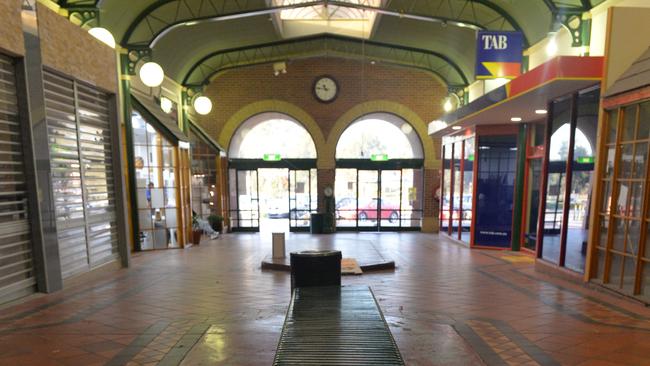Franking credit grab will hit retailers hard
Taking franking credit money out of people’s pockets is only going to punch more holes in a struggling retail sector.

The sharemarket has been anticipating a longer term value fall, but the downward momentum is now accelerating.
On Friday I revealed how a surprised commercial banker saw two of his retail clients negotiate lower rents from a major Australian shopping centre owner when they threatened to leave. It was unprecedented.
Readers responded with many varied comments, but Andrew revealed: “Our office is at a shopping centre in suburban Brisbane and we have been offered a 2 per cent rent reduction on this year’s renewal without even asking for it. And this is in an area where I would consider rents to be quite realistic and good value for money already.”
Fraser came back: “Andrew play hard ball. The shopping centre is already nervous. Go to them with a list of cheaper rents. I bet you can get at least 7 per cent reduction”.
On Friday Macquarie Wealth predicted that Woolworths would be forced to shut a third of its Big W stores, even though the total group is saddled with $2.7 billion in lease commitments. If the 60 stores involved are shut it will create vast holes in shopping centres around the country.
So far space holes created by retailers closing have been filled with new entrants and a rash of coffee shops, cafes and similar eatery businesses. Shopping centre giant Vicinity has increased the space it allocates to food in its malls by 60 per cent.
But this has created a rash of warnings. The founder of the burger chain Grill’d, Simon Crowe, says that too many eateries in shopping centre complexes will threaten the viability of businesses because profits will be spread too thinly. And for most eateries in suburban centres the demand is concentrated at the end of the week. Crowe says a big increase in eateries will not save the shopping centres.
Last week I detailed how Melbourne’s Chapel Street shopping strip was being destroyed by high rents.
And that’s exactly what is happening over a much wider area. Online shopping had made high rents uneconomic in a vast number of centres.
We have long predicted that on line shopping would snuff the growth out of bricks and mortar retailing. But that process has been accelerated by the fall in house prices which has dinted consumer spending in key areas. And there are more blows to come.
Charlie Nelson at Foreseechange started predicting a year ago that lower house prices would hit retail, but he is now able to show exactly where the blows are being felt and, given the credit squeeze is set to continue, the blows will intensify as debt ridden Australians start increasing their savings.
The lowest growth rates in calendar 2018 were in household goods, clothing, and department stores. New cars, especially the more expensive models, and some restaurants are also being hit.
These sectors are all influenced by dwelling prices. So as house prices fall further, the retail demise is likely to continue.
Among the areas least affected are pharmacy and takeaway food. Similarly, supermarkets, specialty food, and liquor stores grew by 4 per cent in 2018 and so far these sectors have not been significantly influenced by the house price falls. But new threats are on the horizon.
We now look set for an ALP government and one of its key policies is a retirement tax levied by eliminating cash franking credits. The tax has been carefully crafted so that rich people are not affected provided they make sensible adjustments to their investment portfolios. In addition, those whose savings are in industry and some retail funds are insulated from the tax. Nevertheless, there are at least 1 million battling Australians whom the ALP believes deserve to be hit, and hit hard. These people are spending their money because they need it for living so a big portion of the billions set to be raised via the retirement tax will come out of retail sales.
And the ALP is making a volley of contradictory statements over wages policy but it is likely that wages will increase at a faster rate. That should benefit retail stores but a lot of the extra wage money will go in customer savings or lower debt, and the retailers’ costs will explode.
The politicians tried to level the playing field against imports by applying GST to goods bought online overseas, but the mechanism has not worked and so, in vast areas, customers buying via Australian retail stores are paying GST whereas online purchasers do not pay GST.
In any shopping centre once, empty space lingers for an extended period it creates the smell of death. The space needs be filled and the only way to do that is to lower the rents. But in time that reduces the overall rent level of the centre.





Bricks and mortar retailers that don’t sell food are set to be hit with even tougher times in Australia, facing a downturn that will lower rents and reduce the value of both small and large shopping centres.